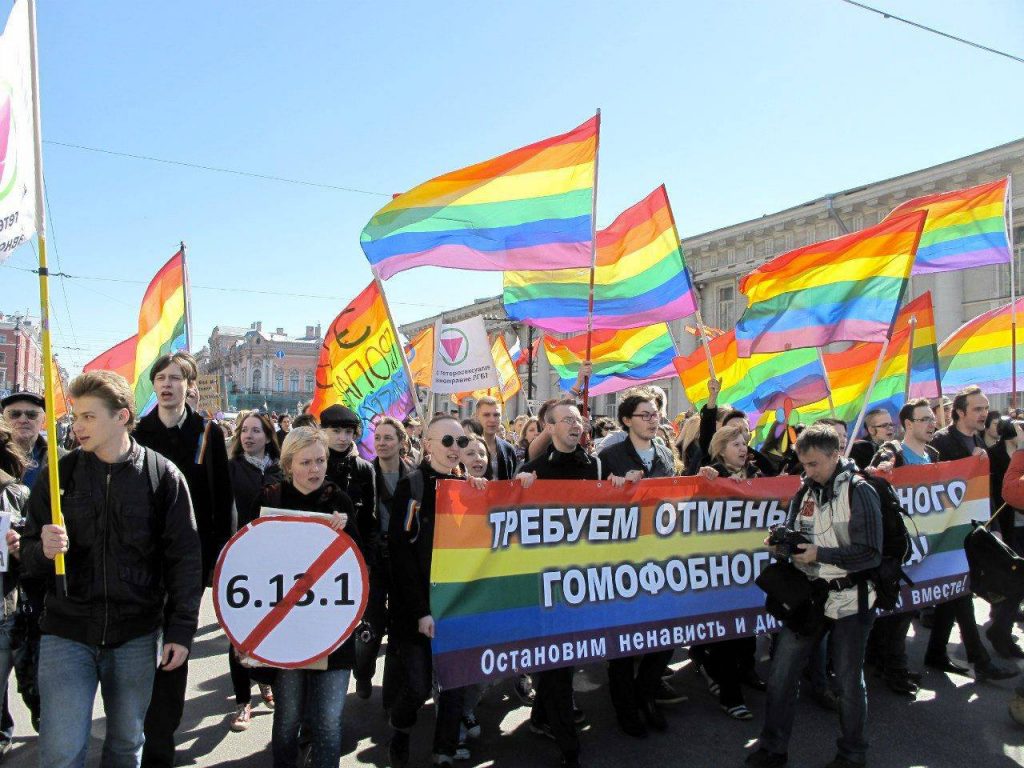A joint statement with ECOM on the deportation of four migrant trans women sex workers in Russia under the latest anti-LGBT “propaganda” law
Is there a new anti-LGBT propaganda law?
In December 2022, the new draft legislation to further restrict the freedom of expression for LGBTQ+ people came into force in Russia. This version of the law is shrinking civil space more radically than ever before. Now sharing any information about queerness is prohibited.
According to Mediazona, a Russian independent media outlet, seven charges related to the new law were made, all of them against trans women sex workers. None of them are Russian citizens.
It is likely that a single police officer is responsible for bringing the first three cases, according to the media, when he discovered the trans women’s profiles on an online advertising platform for sex workers. The court decided to fine the victims and deport them from Russia.
Why do the identities of victims intersect?
Many people from the post-Soviet Union countries migrate to Russia due to economic reasons. For instance, one third of Tajikistan’s GDP is personal remittances from labor migrants most of whom moved to Russia. LGBT people and sex workers also migrate both for economic reasons, and in the search for anonymity and safety of larger cities and countries. The Russian regime has decided to experiment with the new law on the most vulnerable groups, with the least opportunities to fight back.
According to Kyrgyz Indigo’s research, trans women sex workers migrants are struggling with human rights violations in Russia on a daily basis. 83% of them were blackmailed, 74% faced illegal detention and 52% were forced to provide information about their clients to police.
Migrant sex workers in CEECA provide a prime example of a population that is subject to increasing, deeply harmful ‘crimmigration’. They are pursued under a range of sex work-related and other criminal laws, as well as, facing the additional burden of immigration enforcement. Rather than separate areas of law, these sanctions are often used together in intersecting ways that create severe consequences for migrant sex workers.
Russian legislation
“Anti-LGBT propaganda law” is not the only legal barrier to these groups. In the country there is also an administrative punishment of sex work. SWAN members have reported that fines for sex work can result in sex workers being added to state registers for life, thus impacting future employment opportunities. HIV positive migrants could also face deportation, in spite of the fact that such legal provisions do nothing to prevent the spread of the virus but only make people afraid to get tested and get the necessary treatment.
We, regional community networks of LGBT+ people and sex workers in Central and Eastern Europe and Central Asia, are deeply concerned about the human rights derogation in the Russian Federation, and we stand in support with the LGBT and sex worker communities of Russia and other countries affected by it:
- We condemn the criminalizing legislation of the Russian Federation and the targeted use of these legal provisions against trans women, sex workers and migrants;
- We appeal to international and Russian human rights entities to respect intersecting identities and to provide full support to victims.
- We encourage our members and allies to monitor the situation and mobilize to provide support to the victims of deportation in their home countries.
In Solidarity,
ECOM and SWAN
